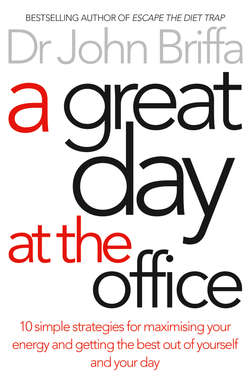Читать книгу A Great Day at the Office: 10 Simple Strategies for Maximizing Your Energy and Getting the Best Out of Yourself and Your Day - Dr. Briffa John - Страница 40
When the Drugs Don’t Work
ОглавлениеThe most commonly prescribed cholesterol-lowering drugs are known as ‘statins’, and these have been shown to reduce the risk of death in individuals who have had a previous heart attack or stroke (and who are therefore at relatively high risk of future problems). However, statins do not appear to save the lives of individuals without this sort of history and who are, essentially, healthy.34 These people, by the way, represent the great majority of people prescribed these drugs.
Also, many other cholesterol-modifying treatments have not been found to reduce the risk of death at all, even in individuals with a prior history of heart disease.35 Failures here include classes of drugs known as ‘fibrates’ and ‘resins’, as well as the drug ‘torcetrapib’. This last medication had to be withdrawn because it was actually found to increase the risk of death. A similar drug (‘dalcetrapib’) was also removed from the marketplace when it was found to be ineffective.
We also have a rather bizarre situation in which drugs can be licensed because of their ability to ‘improve’ cholesterol, despite the fact that they have never been shown to benefit any aspect of health. An example here is the drug ‘ezetimibe’, which is widely prescribed by doctors, but has never been shown to prevent a single heart attack or save a single life.
A look at the wider body of evidence reveals there is considerable reason to question the notion that taking medication to improve cholesterol levels has broad benefits for health.
It seems that statins are the standout winners in terms of benefits, but just how effective are they really? One way to assess the effectiveness of a drug is to calculate what is known as the ‘number needed to treat’. For example, we might ask how many people need to be treated with statins over a defined period of time to prevent one of them from having an event such as a heart attack.
Here are some stats from studies conducted on individuals without a prior history of cardiovascular disease.36 If such individuals were to be treated with a statin drug for five years:
1 in 60 would avoid a heart attack (meaning that only 1 in every 300 people treated is spared a heart attack each year)
1 in 288 would avoid a stroke (1 in 1,440 people each year)
The evidence also shows that no one will have their life saved during five years of treatment and 98 per cent of people will derive no benefit whatsoever.
